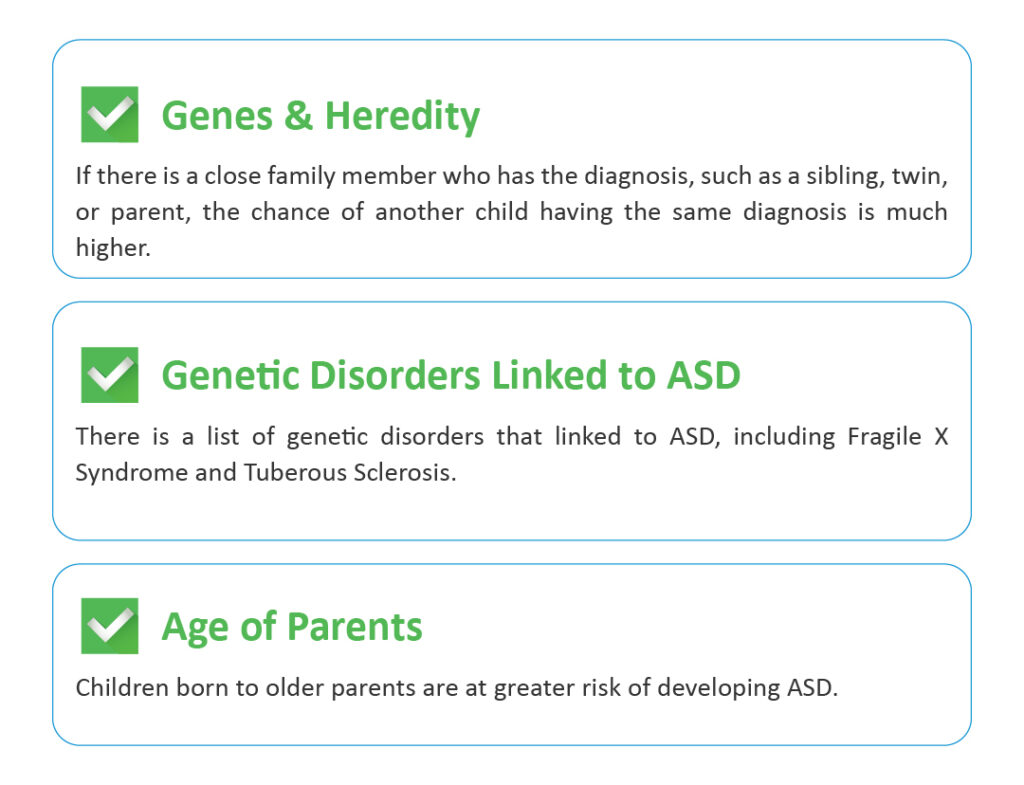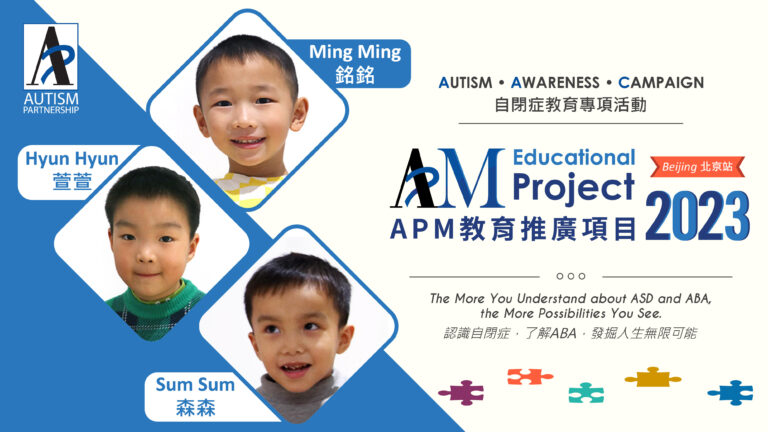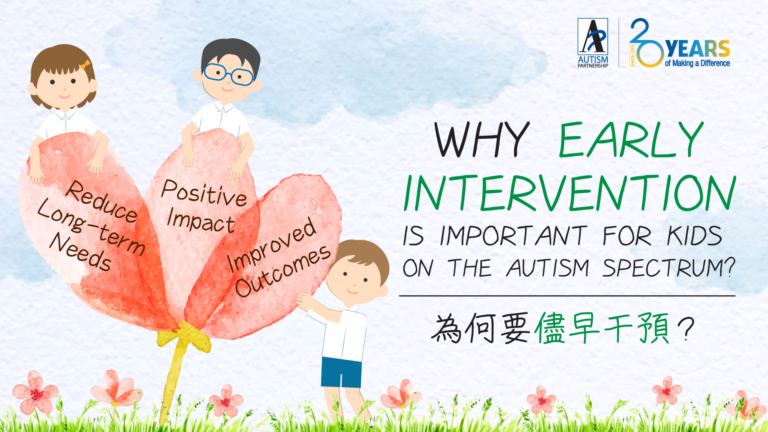
About 1 in 33 children has been identified with Autism Spectrum Disorder (ASD), the latest figure according to the Centres for Disease Control and Prevention (CDC) announced in 2023. Signs of ASD usually begin during early childhood and typically last throughout a person’s life. We are honoured to have the opportunity to interview Dr. Angel Au to learn more about the signs and symptoms of ASD and her professional advice for parents who are in doubts.




Parents should keep in mind that there are differences between ASD and other disorders with certain overlapping symptoms. For example, Speech Delay: children with speech delay usually show good attempts to communicate their wide variety of intents and will interact with others socially using a variety of non-verbal language: e.g. various flexible gestures (e.g. nodding their heads to indicate “yes”, tapping the person to seek their attention, holding their hand with the palm up to ask for an object); whilst pre-verbal children with ASD usually show fewer “social” desires and adopt only a few basic gestures to communicate their needs (e.g. pulling other’s hands, reaching for the item directly or holding their hands out to be carried). Another example is children that are socially anxious. Whilst social anxiety is not uncommon in children with ASD, children who are only socially anxious present clear social connectedness and communicate their thoughts and feelings adequately in more familiar settings with people they feel comfortable with. As such, a formal evaluation is crucial.



The cause of ASD remains unknown. However, there are certain factors that may increase their risk:

Parents should familiarize themselves more with early childhood development, including not only motor and language development but also the milestones of play and social development. I highly recommend the website of Centres for Disease Control and Prevention (www.cdc.gov/ncbddd/autism)which provides comprehensive information including checklists, videos, and a lot of other useful resources to professionals and parents about early developmental milestones and symptoms of ASD in young children.
If you suspect your child could have ASD or other developmental problems, contact a General Practitioner for referral to a specialist who is trained to perform in-depth diagnostic assessment for childhood disorders as soon as possible. The Hong Kong Department of Health also provides developmental surveillance for young children.

Every little life is a special present for a family. From the time a baby is born, parents journey through lots of highs and lows, wishing for their child to grow up with a big smile, make great friends, find their own way in a job they love, and create a happy family. However, for […]

Parenthood is a journey filled with unexpected twists and turns, challenges, and moments of profound joy. For Adam’s father, the discovery that his son, Adam, was on the autism spectrum marked the beginning of a unique chapter in their lives. This is the story of a father’s realization, acceptance, and the unconditional love and strength […]

Autism Spectrum disorder can be diagnosed as early as 18 months. Research shows strong evidence on how effective Applied Behavior Analysis (ABA) can help children with Autism. It helps to deal with children’s challenging behaviors such as inattention, aggression, self-stimulation, etc. Howard, et al (2005) conducted a study to compare the effectiveness of 3 treatment […]
Please share to let more people learn about ASD and ABA therapy:
AP holds the belief that with quality Autism Partnership Method (APM) treatment, individuals with autism should reach their fullest potential and achieve the greatest degree of independence and highest quality of life possible.
Sign up now to get ABA and Autism related news delivered to your inbox. Enter your email to get started
Hong Kong Center
Kowloon Center

All information received will always remain confidential. We will contact you as soon as we review your message. Thanks